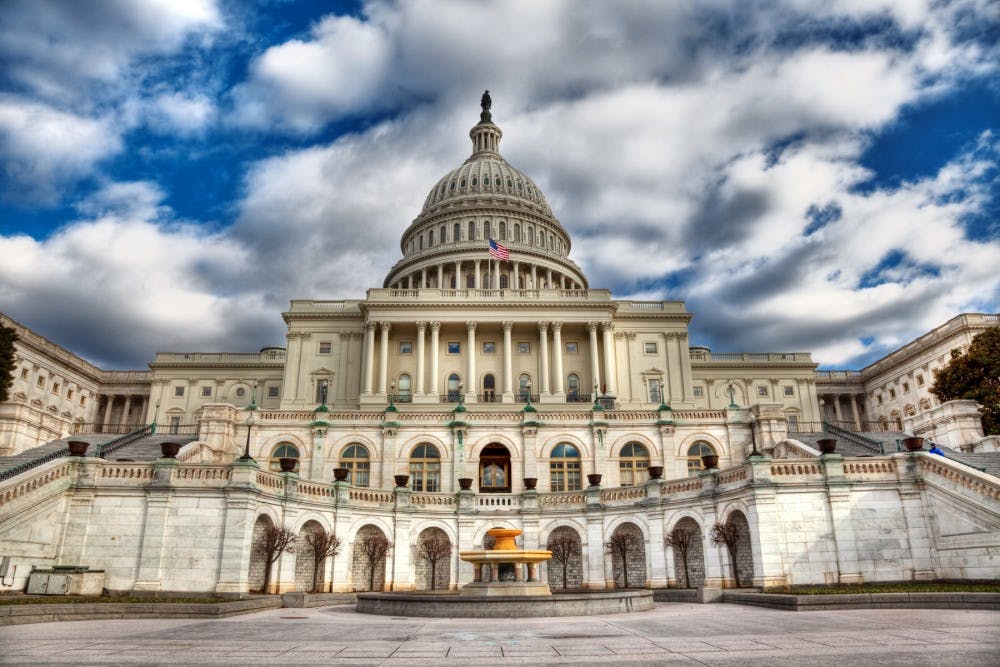Amidst campus controversy over Penn’s recently unveiled sexual assault policy, a bipartisan group of 12 U.S. senators reintroduced a bill establishing guidelines for colleges to adjudicate sexual assault complaints on Feb. 26.
The bill, dubbed the Campus Accountability and Safety Act, is a fine-tuned version of the July bill introduced last Congress, and includes more precise language for implementers, clearer deadlines and stronger protections for the accuser and the accused student.
The bill establishes anonymous surveys of the student population every two years to gauge the prevalence of sexual assault and requires colleges to notify the accuser and accused within 24 hours of the complaint with a written notice of the college’s decision to move ahead with an investigation.
Moreover, the bill puts forth guidelines for confidential advisors to assist and inform the accuser during the process of filing a complaint. Its sponsors in Congress have touted the changes for strengthening the rights of the accused.
“We are very focused on making sure there’s also due process,” said Sen. Claire McCaskill (D-Mo.), who has spearheaded both sexual assault bills.
“It’s billed as providing new due process protections, but it doesn’t,” said Penn professor of law and criminology Stephanos Bibas.
It is still unclear whether the passage of the Senate bill could incite administrators to adjust Penn’s sexual assault policy.
“As with any legislation that concerns colleges and universities, we’re tracking and monitoring the bill. If this measure passed in its current form, Penn’s response would be to ensure institutional compliance,” Dawn Maglicco Deitch, executive director of the Office of Government and Community Affairs, said in an emailed statement.
Bibas helped author an open letter on Feb. 18 that criticized Penn’s recently unveiled policy for investigating complaints of sexual assault. 16 other tenure or tenure-track Penn Law School faculty members signed the letter.
Nearly a month after authoring their letter, Bibas and his colleagues have still not heard a “substantive response” from Penn administrators.
Ron Ozio, Penn’s director of media relations, stated earlier to various news outlets that “the University had consulted with Law School faculty members in developing the new process.”
However, Bibas said this consultation hardly reached a consensus.
“They said, ‘We consulted with the Law School.’ Well, they came over and consulted and there was a huge outcry,” Bibas said.
Since then, “there’s just been radio silence,” he said.
Bibas has little hope that the new bill introduced in Congress will precipitate any positive changes on campus. Specifically, Bibas called out the bill’s 24-hour notification requirement as being vague.
“It doesn’t say anything beyond, ‘we’re going to give you a written notice.’ It doesn’t say you’re going to get a hearing. It doesn’t say you’re going to be able to cross-examine them,” he said.
Moreover, the bill leaves other processes ill-defined, like the selection of policy enforcers on college campuses, Bibas said. “Are they going to pick administrators in a fair matter? Are they going to assure that the training for adjudicators is even-handed and balanced?”
Bibas attributed the problems with Penn’s policy to pressure from federal officials to tighten up the handling of sexual assault complaints.
“The real villain here is the feds, [and] there is a rush to avoid liability by colleges,” he said.
In contrast to other schools, Penn does still allow a hearing for the accused, which Bibas duly noted.
He added, “Penn could do more to stand up, but it is at least an understandable reaction.”



